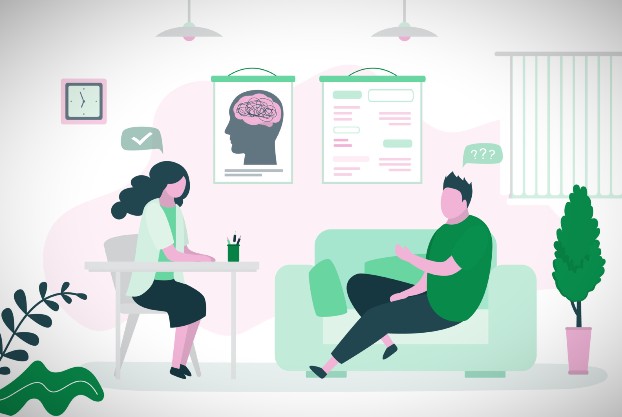When it comes to mental health struggles, early intervention is key. For adolescents, this means seeking out therapeutic practices to address the issue head-on.
Therapy can provide the necessary structure and support for adolescents as they grapple with their mental health struggles. There are a variety of therapeutic practices that can be effective in helping adolescents, but the right approach depends on the individual and their specific needs.
In this article, we’ll explore some of the most common therapeutic practices used to treat mental health struggles in adolescents. We’ll also discuss the benefits and challenges of each approach. By the end, you’ll have a better understanding of what to expect from therapy and how it can help your adolescent.
What Is Adolescent Mental Health Treatment?
When people think of mental health treatment, they often think of adults. However, adolescent mental health treatment is just as important. This is the time in a person’s life when they are growing and changing the most, and it’s important to have support during that time.
There are a variety of therapeutic practices that can be used to help adolescents with mental health struggles. Some common ones include cognitive behavioral therapy (CBT), dialectical behavioral therapy (DBT), and family-based therapy (FBT).
Each of these therapies has its own unique approach, but they all share the common goal of helping adolescents learn how to cope with their emotions and thoughts. They also help adolescents develop healthy relationships with themselves and others.
The Types of Therapies Used for Adolescents
There are several types of therapies that are used to treat adolescents with mental health struggles. One type is cognitive behavioral therapy (CBT), which is a type of talk therapy that helps adolescents identify and change the thoughts and behaviors that contribute to their mental health struggles.
Another type of therapy is interpersonal psychotherapy (IPT), which helps adolescents develop better relationships with others. This can be helpful for adolescents who struggle with social anxiety or depression.
Yet another type of therapy is family-based therapy, which helps adolescents get the support they need from their families. This type of therapy can be helpful for adolescents who are struggling with issues such as drug addiction or behavioral problems.
Benefits of Therapy for Adolescents
Therapy is proven to be an effective way to treat mental health struggles in adolescents.
There are many benefits to therapeutic practices for this population. First and foremost, therapy provides a safe and confidential space for adolescents to express themselves. It also helps them learn new skills to deal with difficult emotions and thoughts.
Therapy can also increase self-awareness and help adolescents develop a better understanding of themselves and their relationships with others. It can also promote positive changes in behavior, boost self-esteem, and reduce anxiety and depression.
Challenges in Mental Health Treatment for Adolescents
It is important to note the difficulties in treating mental health struggles in adolescents. One of the primary challenges is that adolescents may not have the same capacity for emotional processing as adults, which can make traditional forms of therapy difficult. Additionally, it can be hard to get buy-in from teens who may not want to engage in therapy or talk freely about their feelings.
A lack of access to mental health services in rural areas or less affluent communities can also be a difficult obstacle. In some cases, it can be impossible to find a qualified therapist or find enough funding for treatments. These barriers may prevent teens from getting the help they need, and so it’s important to be aware of them and work towards finding solutions.
How to Prepare for Adolescent Mental Health Treatment
Once a treatment plan is developed, it’s important to have a clear idea of what needs to be done to ensure the best outcomes. One of the first steps is to make sure that the adolescent feels comfortable and safe.
Creating a safe environment for the adolescent means being aware of potential triggers, such as other people and environments, and providing emotional support and encouragement whenever possible. It also involves talking openly about expectations and any worries connected to therapy.
It’s also advisable to familiarize yourself with adolescent mental health issues in order to understand the scope of what needs to be treated. Also take into consideration any pre-existing conditions, such as autism or Asperger’s Syndrome, or any familial dynamics that could affect your approach when tackling mental health challenges.
By taking these steps on how to best prepare for adolescent mental health treatment, you’re on your way towards helping your child develop healthy coping skills and gain control over their mental wellbeing.
FAQs About Therapy for Adolescents
If you have more questions about therapeutic practice for adolescents, here are some FAQs that may be helpful.
Q: How can therapy help my teen?
A: Therapy can help your teen build emotional regulation, learn how to cope with difficult feelings, and create positive and healthy relationships. It can also help them explore underlying issues that may be impacting their mental health, learn healthier ways of managing stress, and create healthier habits and behaviors.
Q: How do I choose a therapist for my teen?
A: When selecting a therapist for your teen, it’s important to consider the type of therapy that’s best for them (e.g., cognitive behavioral therapy or family therapy), their age, gender identity, and any specific needs they may have. It’s also important to make sure they feel comfortable with the therapist.
Q: What should I expect when my teen starts therapy?
A: The first session will typically involve an assessment of your teen’s mental health needs and goals. Afterwards, sessions will generally focus on helping your child develop tools and skills they can use to manage stressors in daily life. Additionally, most therapists recommend routine meetings over a period of time so progress can be monitored and new skills developed as needed.
Conclusion
So, what can you do if you’re a parent of a teenager who is struggling?
First, realize that you are not alone. Second, seek out help for yourself and your teen. Third, start with therapy. Fourth, explore medication if needed. Fifth, be open to change. Sixth, focus on the future. Seventh, know that things will get better.








